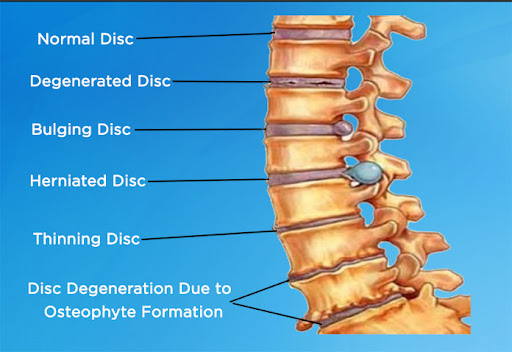
Laminectomy
What Is a Laminectomy?
A laminectomy is a surgical procedure that removes a portion of the vertebral bone called the lamina, which covers the spinal canal. This creates more space for the spinal cord and nerves, relieving pressure caused by conditions such as:
Spinal stenosis
Herniated discs
Bone spurs (osteophytes)
Spinal tumors
Degenerative arthritis
Spondylosis or trauma
By reducing nerve compression, laminectomy helps ease pain, numbness, and weakness in the back, arms, or legs.
When Is Laminectomy Recommended?
Our spine specialists recommend a laminectomy when:
Non-surgical treatments such as physiotherapy, medications, or injections have not provided relief.
You experience persistent leg or arm pain due to nerve compression.
Numbness, tingling, or weakness affects your ability to walk or perform daily activities.
MRI or CT scans show significant narrowing of the spinal canal or nerve root compression.
At Vidarbha Institute of Spine Surgery, every surgical decision is made after thorough clinical evaluation, imaging review, and patient-specific planning.
Types of Laminectomy Procedures We Perform
Depending on the patient’s condition and spine segment involved, our surgeons perform several types of laminectomy:
1. Cervical Laminectomy
Performed in the neck region to relieve pressure on the spinal cord and nerves. It is ideal for patients with cervical spondylotic myelopathy or disc prolapse.
2. Lumbar Laminectomy
The most common type, performed in the lower back to treat lumbar spinal stenosis. It helps restore leg strength and walking ability.
3. Thoracic Laminectomy
Done in the mid-back area, often for tumors, trauma, or severe stenosis affecting the thoracic spine.
4. Minimally Invasive Laminectomy
Using advanced techniques and smaller incisions, this approach ensures less blood loss, minimal muscle damage, and faster recovery.
Our Surgical Expertise
At Vidarbha Institute of Spine Surgery, we combine expert surgical skills with cutting-edge technology to ensure precision and safety in every procedure. Our surgeons use:
Intraoperative microscopy and navigation systems for accurate bone and tissue removal.
High-definition imaging to preserve nerve function.
Minimally invasive tools for faster recovery and reduced hospital stay.
Every patient undergoes detailed preoperative counseling and diagnostic assessments, ensuring personalized care at every stage.
Step-by-Step Overview of Laminectomy
Preoperative Evaluation:
A detailed assessment including MRI, CT scan, and nerve studies is performed to confirm the source of compression.Anesthesia & Positioning:
The surgery is performed under general anesthesia, and the patient is carefully positioned for maximum safety.Bone Removal:
The surgeon removes the lamina — the small section of bone that is pressing on the nerves — using advanced microsurgical techniques.Nerve Decompression:
Any bone spurs, ligament thickening, or disc fragments compressing the nerves are carefully removed.Stabilization (if required):
In cases of spinal instability, fusion with screws, rods, or bone grafts may be added to strengthen the spine.Closure & Recovery:
The incision is closed neatly, and the patient is shifted to recovery under expert monitoring.
Benefits of Laminectomy at Our Institute
Effective Pain Relief: Reduces chronic back or leg pain caused by nerve compression.
Improved Mobility: Restores strength, flexibility, and walking ability.
Enhanced Nerve Function: Relieves numbness and tingling sensations.
Minimally Invasive Options: Faster recovery and minimal scarring.
Reduced Dependence on Medication: Long-term relief without prolonged drug use.
Our success rates are driven by expert planning, surgical precision, and advanced rehabilitation support.
Post-Surgery Care & Recovery
After a laminectomy, most patients notice a significant reduction in pain and improved movement within a few days. Our post-operative care includes:
Regular monitoring and pain management.
Early mobilization and physiotherapy to restore strength.
Guidance on posture, exercises, and lifestyle modifications.
Follow-up consultations to track recovery and prevent recurrence.
Recovery duration depends on the type of procedure — minimally invasive laminectomy patients often resume normal activity within 2–4 weeks, while traditional open surgery may require a slightly longer recovery period.
Why Choose Vidarbha Institute of Spine Surgery?
Experienced Spine Surgeons: Highly qualified specialists trained in advanced microsurgical and minimally invasive spine procedures.
Comprehensive Diagnosis: In-depth evaluation using the latest MRI, CT, and EMG studies.
Modern Operation Theatres: Equipped with advanced imaging and surgical navigation systems.
Patient-Centric Care: Personalized treatment plans and transparent communication at every stage.
Integrated Rehabilitation: On-site physiotherapy and post-operative recovery programs ensure complete healing.
High Success Rates: Trusted outcomes with reduced complications and faster return to daily life.
